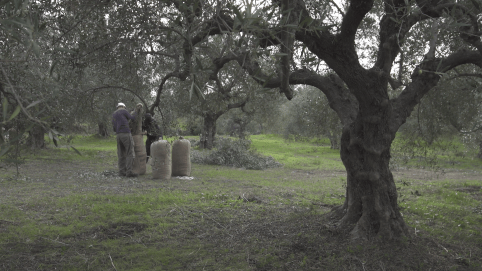
The Zero Waste Movement Is Growing All Over The World
Picture this scenario: you’ve decided to open a zero waste store selling food and everyday products without the packaging. Zero waste stores are opening up all over the UK and the movement is going from strength to strength. You’ve got your rice, grains, pastas, all the essentials. Oh, better not forget olive oil too!
All is going well until a few months in when you receive an email from Trading Standards telling you that an item in your shop has been reported! What could it be? Did someone choke on some pasta? Was the rice mislabelled as quinoa?
No. You committed the heinous crime of selling extra virgin olive oil — on tap! You are told to cease selling the olive oil immediately. You are baffled. Your customers are baffled and they now go back to buying the tasteless and nutritionally vacant olive oil in plastic bottles at the supermarket…
Why was the regulation passed to prohibit on tap sales of olive oil across Europe? As an olive oil producer, who works extensively within the zero waste sector, even I have yet to find a definitive answer. The most likely reason is that it was passed to stop unscrupulous retailers from filling their dispensers with any old liquid and selling it as premium extra virgin olive oil (EVOO).
The terrible and frustrating irony is that this is exactly what happens to store bought, bottled olive oils anyway. The most recent testing by the Rural Payments Agency found that 43 out of the 131 supermarket olive oils in the UK were fake*. This could mean anything from selling old, sometimes even rancid olive oil as new, blending with rapeseed oil or colza oil and even using chemical flavouring.

The Aeithalis Grove, South Greece
If there is such concern over tampering then shouldn’t we also ban the selling of all bottled olive oil until the problem is fixed? As ever, instead of naming and shaming these large companies, the government refused to reveal them publically. They also allowed them to continue to trade on a promise that the fake olive oil problem was to be rectified (which it hasn’t been). It goes without saying that this courtesy would not be extended to small producers or small retail businesses.
So we are in a situation where these rules force customers to purchase big company olive oil which is likely to have already been tampered with anyway. This has led to an entire revenue stream for independent retailers and small olive oil producers to be terminated. But don’t worry, you can still buy your fake olive oil at all major retailers in single use plastic packaging!
This vague regulation does nothing to address the real issue which is that the “extra virgin” moniker, which was originally created to distinguish the best 1% of all olive oil made in a season, is now worthless. In Spain, Italy and Greece 50–80% of all olive oil made is apparently of “extra virgin quality”. Clearly something is not right but that is a discussion for another time.
What is the solution then for the ethically conscious store owner who wants to sell this in demand product from a reputable producer? Must they resort to selling individual bottles and defeating the entire premise of their zero waste store in the process?
Thankfully not! As ever with ill thought out rules, there are loopholes which can be safely and legally exploited.
Infused oils are legal to sell on tap.
So we have made a special infusion suitable to be sold at zero waste stores.
In the medium term we resort to selling products and offering a refill service that neatly skirts around the regulations but this is not a solution for the future. The zero waste movement is growing at a tremendous rate with hundreds of stores opening around the UK already. In Europe too, the movement is growing at an exponential rate. The olive oil on tap issue is not going to go away and so we must work to change these rules. The desperate attempt at keeping EVOO pure and unspoilt needs to be centered on us as producers, not on retailers. If that means that a lot less “extra virgin” quality olive oil is made then so be it. Gold is worth its weight because of its scarcity and uniqueness. The liquid gold we work hard to make each year should be held to the same standard.
William Uden makes extra virgin olive oil by hand with his good friend Ilias Panagiotakopoulos at their grove in Southern Greece. They sell to over 50 zero waste stores and restaurants across the UK and France.
If you’re interested in learning more about our legal olive oil refill service please head over to www.aeithalis.co.uk

Getting the right olive oil is important to getting the right results. If you know which brand of olive oil is best for you, then you can get the health benefits and the flavors that you desire. The right brand will give you a delicious product that is easy to use and very affordable.